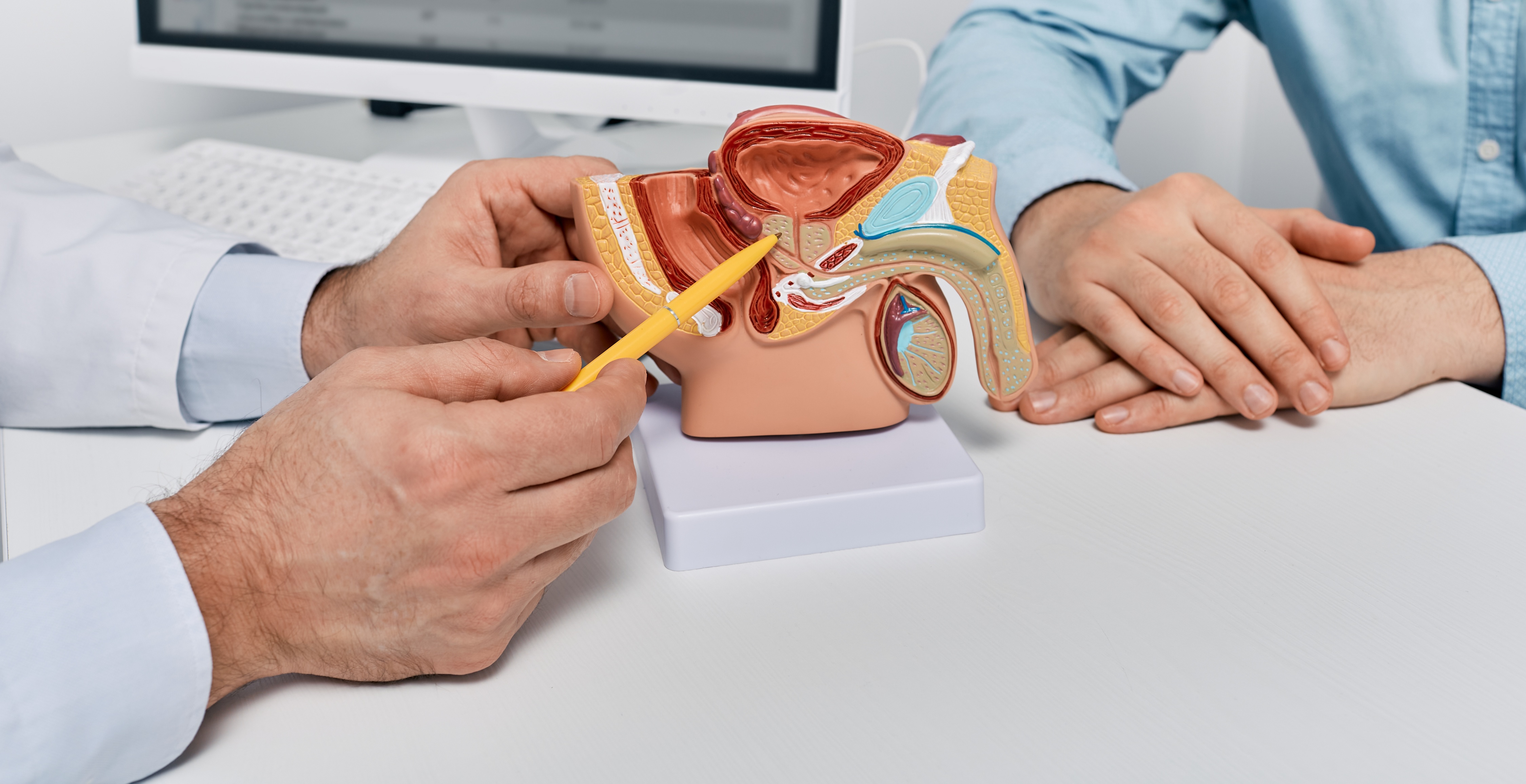
New Brunswick, N.J., September 1, 2024 – As the most common cancer (after skin cancer) and the second leading cause of cancer death among American men, prostate cancer remains one of the most significant health concerns for men today. Given its prevalence, it’s crucial for men and their loved ones to be informed about regular prostate cancer screenings, which are an essential tool for early detection. It's time to break the stigma that often prevents men from seeking the care they need. David M. Golombos, MD, urologic oncologist in the Urologic Oncology Program at Rutgers Cancer Institute and RWJBarnabas Health, New Jersey’s only NCI-designated Comprehensive Cancer Center, shares what men need to know.
Know your body. The prostate is a gland in the male reproductive system, located just below the bladder and in front of the rectum. Often about the size of a walnut, the prostate surrounds part of the urethra, the tube that empties urine from the bladder. This gland produces fluid that makes up part of semen, playing a crucial role in male fertility.
Understand the risks and symptoms. While the exact cause of prostate cancer remains unknown, several factors can increase the risk of developing the disease. Age is a significant factor, with men over 50 being more susceptible. A family history of prostate cancer, particularly if a father or brother has been diagnosed, also raises the risk. Additionally, race plays a role, with Black men being more likely to develop prostate cancer than white men. Prostate cancer often presents no symptoms in its early stages, making regular screening even more critical. In more advanced cases, symptoms may include:
- Changes in the frequency or strength of urination
- Painful or burning urination
- Blood in urine
- Sudden or rapid decline in erectile function
- Painful ejaculation
- Blood in semen
Men experiencing any of these symptoms should consult their doctor right away.
Regular prostate exams matter. Get checked. Prostate abnormalities can be detected through a blood test measuring prostate-specific antigen (PSA) levels or a digital rectal exam (DRE). The DRE involves a doctor feeling the prostate through the rectal wall to check for lumps or other irregularities. These exams are vital in detecting prostate cancer early when it’s most treatable. It is recommended that men begin discussing prostate cancer screening with their doctor at age 45. However, men at higher risk—such as Black men or those with a family history of prostate cancer—should start these conversations at age 40.
Break the stigma around prostate exams. Despite the importance of prostate exams, many men avoid them due to fear, embarrassment, or a sense of shame linked to the prostate’s role in sexual function. It’s essential to shatter these misconceptions. Getting screened for prostate cancer is a vital component of men’s health, and should be viewed as a sign of strength, not weakness. Encouraging open discussions about prostate health is critical. Women can also play a significant role by supporting the men in their lives and urging them to prioritize their health by getting regular screenings.
Learn more about the Prostate Oncology Program.
MEDIA CONTACTS:
Krista Didzbalis
732.507.8307
krista.didzbalis2@rwjbh.org

